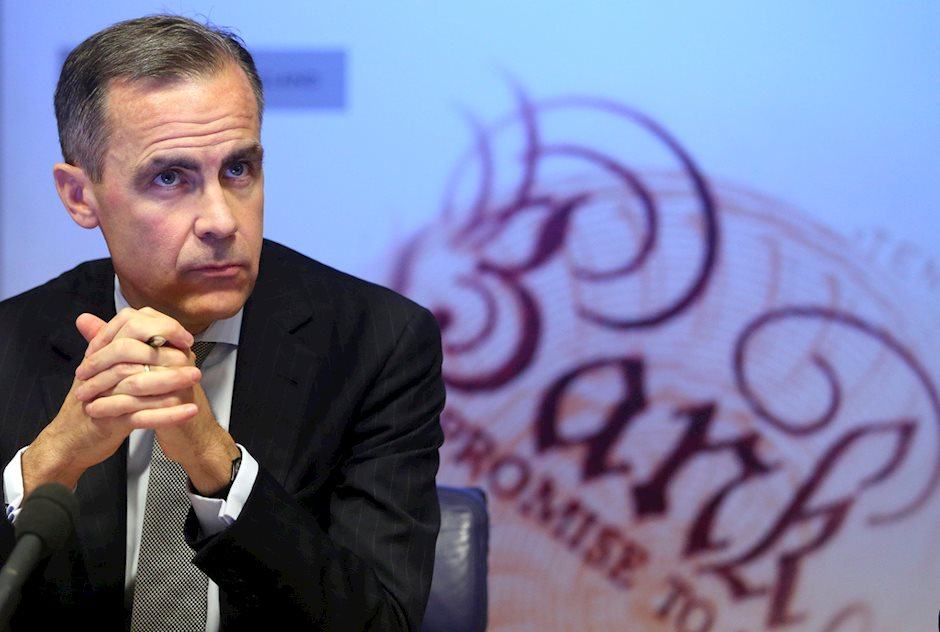Sterling Facing Critical Week

Perfect Storm Approaching
Analysts cite political uncertainty, macroeconomic data and monetary policy as the three main drivers of economy and therefore currency. There isn't one which is more important than the other and they are all interwoven each influencing the other two to a varying degree dependent upon the level of each or in the case of data, the degree of variation from expectation.
This week the U.K. faces the influence of all three drivers. Parliament will vote on the first Bill put before it that provides an opportunity to appraise the Government's performance. Despite the almost universal disapproval of how Brexit is being handled, their vote to pass legislation that repeals the original decision to join the then Common Market, should pass within the slimmest of majorities.
Next comes macroeconomic data. First is inflation which will be released tomorrow. The headline is likely to have reached 2.8% as fuel costs start to increase with the onset of autumn and the disruption to supply created by the hurricanes that have battered the U.S. The seemingly unstoppable march to 3% will continue unabated blamed on currency weakness by Bank of England Mark Carney.
The employment report will be released on Wednesday and whilst it doesn't receive the fanfare of its American counterpart, traders will be intrigued to see the increase in earnings which is likely to have risen to a modest 2.3%
Political unrest remains a problem for the Eurozone.
Remember January when the EU and the common currency were under threat from several quarters, not least the threat of nationalism during the election campaigns in the Netherlands and France. The eventual winners of those elections, good Europeans Mark Rutte and Emmanuel Macron led what was supposed to be a period of political certainty.
The EU is an experiment and as such will never run smoothly. The unrest in the east of the region with Polish constitutional concerns and Hungary's issue over its border are going to be added to by issues coming to the fore in the west.
The German election is a foregone conclusion. Angela Merkel, avuncular (?) Leader of the Christian Democratic Union is set to gain a fourth term in office. The dark cloud on the German horizon comes in the shape of Beatrix von Storch who sounds like the villain in a James Bond film but is, in fact, the leader of the far right Alternative for Germany Party (AfD). She has, naturally, been feted by Nigel Farage who shows the speed of Usain Bolt and the tenacity of Mo Farah when he sniffs anything approaching a right-wing revival.
AfD is possibly going to win a 10% share of the vote and become the first far right party represented in the Bundestag in more than fifty years.
Italy; from basket case to respect and back
There is an election on Italy next year. The fourth, soon to be third, largest economy in the EU will hold its standard chaotic voting process to create an almost impossible to understand coalition.
The governing Democratic Party headed by Paolo Gentiloni who succeeded Matteo Renzi who resigned last December when his political reform referendum failed is running neck and neck with the main opposition party, Five Star who despite sounding like a girl band have been a credible opposition.
Each of the four main parties opposing the Democratic Party subscribe to the introduction of a parallel currency to rival the Euro despite the dire warnings emanating from Brussels and Frankfurt. It seems Rome is going to play Brussels at its own game of semantics and sticking to the letter of its treaties so beautifully illustrated by Brexit.
There is a ban on any other legal tender than the Euro. The definition of legal tender is that is catties a guarantee of payment. So, those crafty Italian Politicians are going to introduce an alternative that does not carry an implicit guarantee. It has been mooted before in other countries and will be used purely domestically. All payments outside Italy will be in Euros as will payments made to visitors within Italy.
Could this be a prelude to Italexit? Who knows but it should start alarm bells ringing in Brussels.
Author

Alan Hill
Treasury Consultancy
A highly experienced banker with an in depth knowledge of Corporate Banking, Treasury and Trade Finance. Global markets, risk management, FX trading and sales & interest rate management have been a major part of my career.

















